Interview: Jamie deRoy & Laughs & Memories & More
The iconic Mistress of All Trades has a lot to say, and it's all worth hearing.
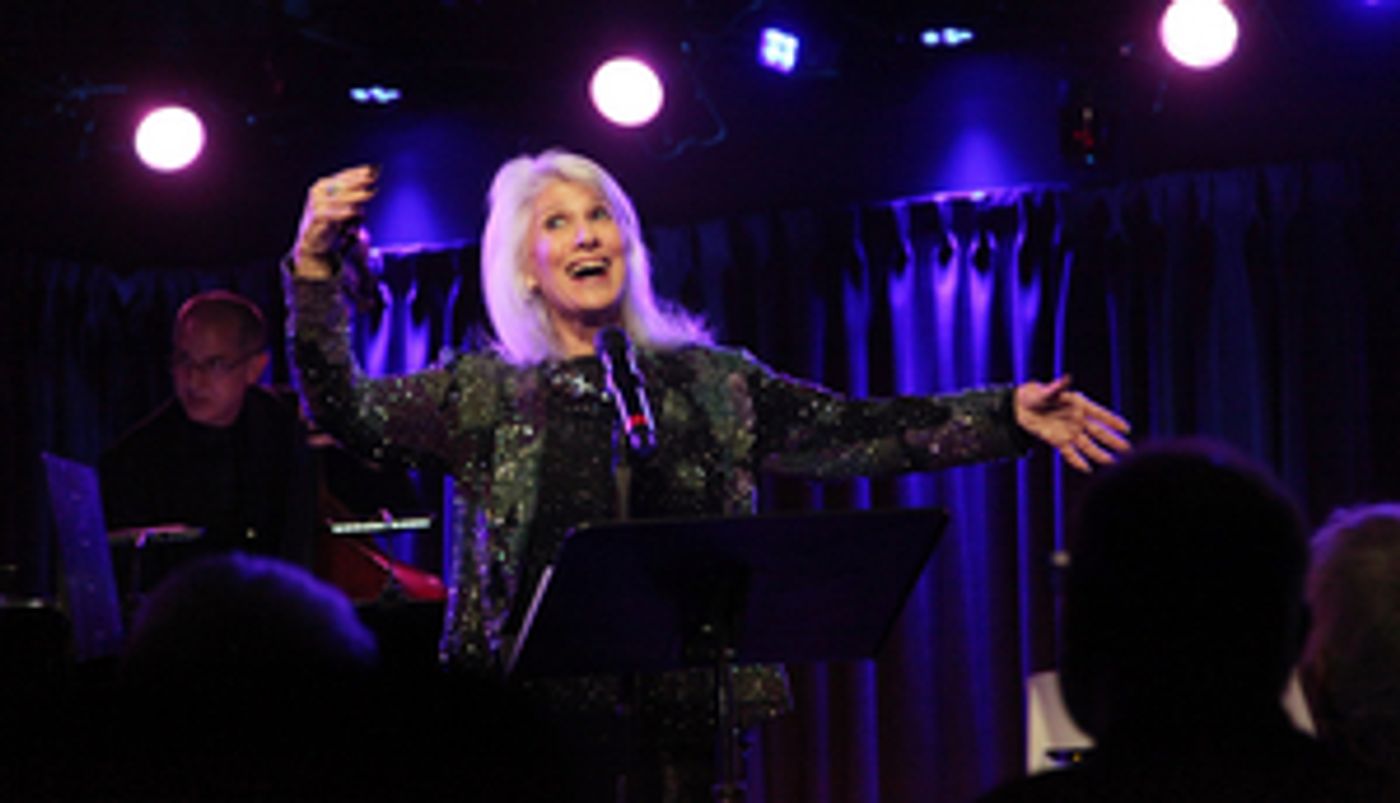 There never has been, nor will there ever be again, a woman as indefatigable as Jamie deRoy. The Tony Award winning producer has had more lives in show business than a feline that won't stop moving. Throughout her days in the entertainment industry, Ms. deRoy has performed the musical theater for which she trained, the comedy that she made up on the spot, the hosting duties that made her famous, and the role of producer that brought her statues. Not a night goes by (in a regular year) that she is not to be found in a theater, nightclub, or some other venue that shines a light on artists of the Thespianic persuasion.
There never has been, nor will there ever be again, a woman as indefatigable as Jamie deRoy. The Tony Award winning producer has had more lives in show business than a feline that won't stop moving. Throughout her days in the entertainment industry, Ms. deRoy has performed the musical theater for which she trained, the comedy that she made up on the spot, the hosting duties that made her famous, and the role of producer that brought her statues. Not a night goes by (in a regular year) that she is not to be found in a theater, nightclub, or some other venue that shines a light on artists of the Thespianic persuasion.
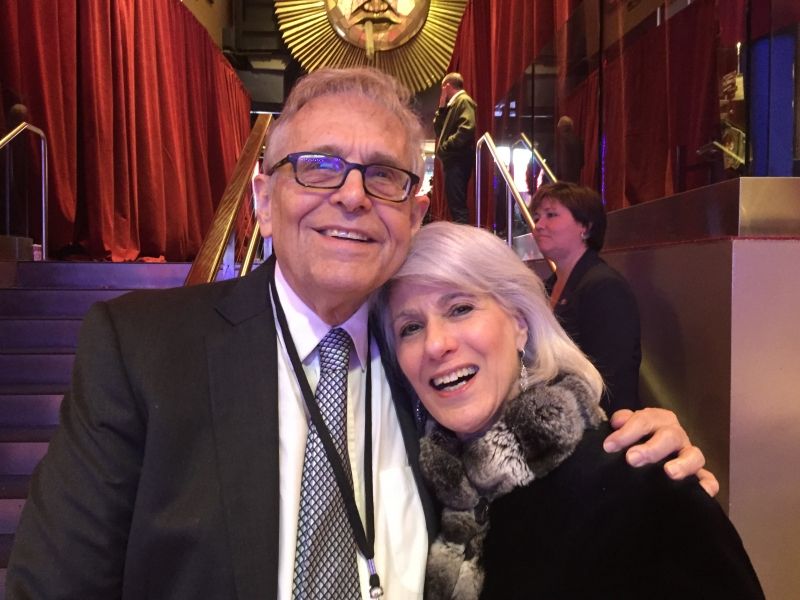
For the last year, Jamie deRoy has been using her time to create episodes of the television show Jamie deRoy & friends using three decades of archival footage. The program that airs on Spectrum Channel 56, RCN Channel 83, and Verizon FIOS Channel 34, has kept fans of live entertainment occupied and connected to the passion that they share with Jamie, and it has kept her busy during a time when many are preoccupied with worry. For a person as industrious as Jamie deRoy, idle hands are not the devil's playground - they are an unthinkable way of life.
During a month when Broadway World Cabaret is celebrating the women of the business, a chat with Jamie seemed de rigueur, so I asked her if we might spend some time talking about the old days of cabaret, to find out why she's had such longevity, and to hear about some of her celebrity encounters over the years.
This telephone interview has been edited for space and content, and features photos from the final Jamie deRoy & friends before the shutdown, featuring Tyne Daly, Julie Halston, Adriane Lenox, Howard McGillin, Jennifer Mudge, and Chesney Snow.
Jamie, how are you these days?
(Laughing) It's a funny world today that we're living in. I'm not used to being home so much. I don't think my cats are used to me being home so much... Especially at night - during the day they're used to me but not during the night, I'm sure that's when they really run around.
Are they acting out?
No, they're good little guys.
So, I saw you the night before the shut down at the Primary Stages benefit of Jamie deRoy & friends, a year ago; do you remember that night?
Do I remember that night?! I mean, the pre-show talk was all about "Oh my god, did you hear an usher at the Brooks Atkinson has it."
"The Brooks Atkinson, that's where 'Six' is supposed to open tomorrow night - I'm supposed to go to that." And we didn't know whether... some people on stage touched elbows, some people hugged because that's what we were used to. We didn't know what to do, it was so crazy! And I remember Julie Halston's line "Well, apparently we're all going to die tonight!"
(Both laughing)
She said something like "It's the end of the world, drink up!"
(Both laughing)
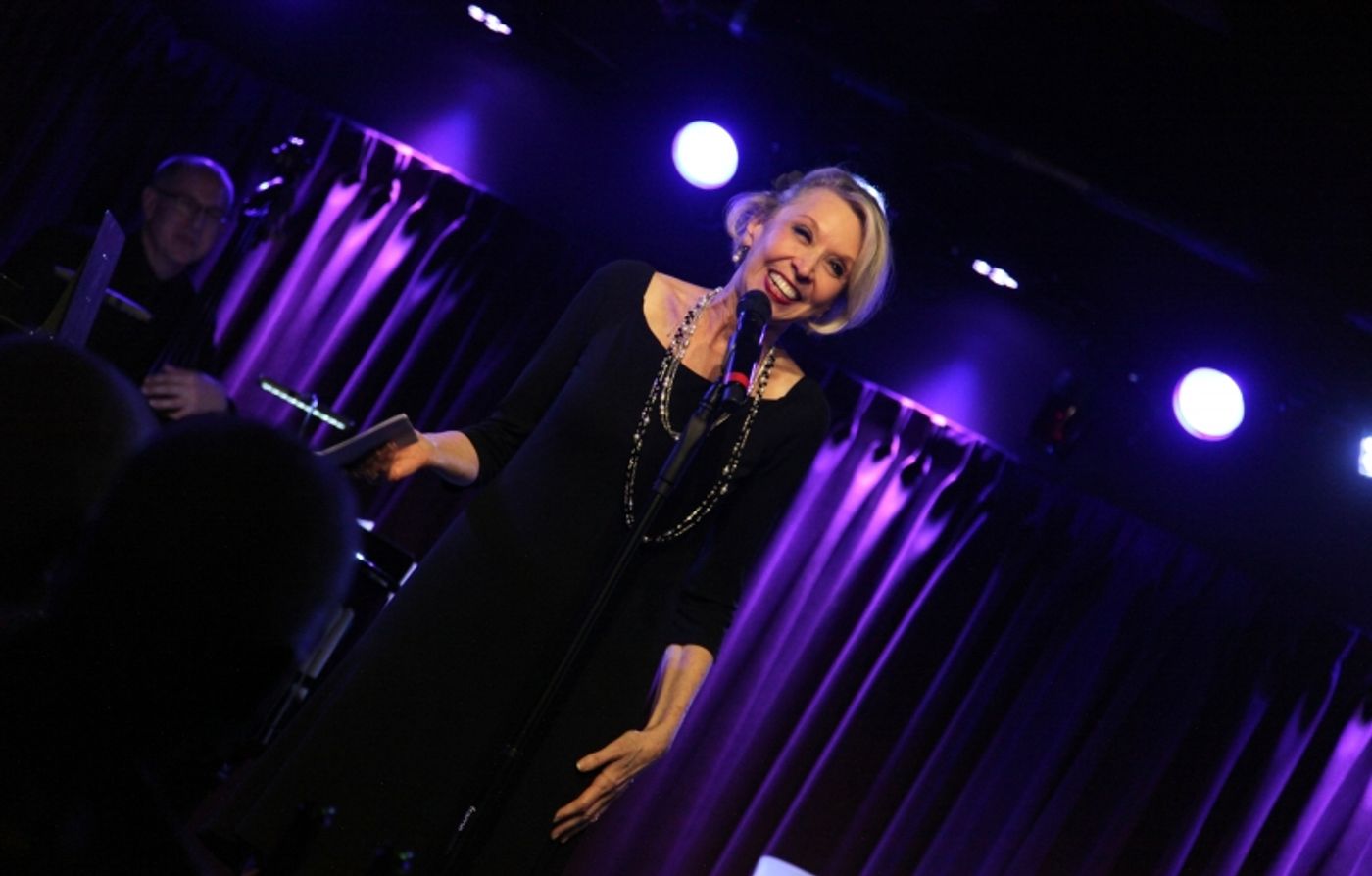
It was so crazy - nobody knew what to make of anything but we couldn't have predicted that all the Broadway would just come to a halt; even the next day when they said that they were closing down, they said a month. Nobody in your wildest dreams could've thought that it could be still going on a year later. At least now we're making progress. I know I've had both vaccines, a lot of my friends have. That seems to be the biggest talk on the zoom calls lately - Did you get your vaccine yet, how'd you get it, where'd you get it, did you have to wait long? (Laughing) It gets boring! And then when you hear that somebody didn't get it you want to help them.
Have you enjoyed learning the new technology like zoom?
I can't say I've enjoyed it, and I don't have any of the proper equipment that people ran out and got like a ring light and microphone and stuff. I just sit in front of either my desktop computer in my office or a laptop in my den, and it is what it is.
So, before we get to talking about the last year and the work you've been doing, I want to talk about the Jamie deRoy trajectory in business: you started out as a performer, segued into your show Jamie deRoy & friends - it was a stage show, a television show, you've done CDs, and you became a Tony award-winning producer. I'm tired just saying it!
You're funny.
Put a picture in my head of what that was that like for you.
.jpeg)
It was just kind of a natural progression in the sense that, when I really started in the business way back when, in a musical theater, the first thing I did of any importance in New York was "The Drunkard" and our musical director was Barry Manilow. Eventually, I got an audition at the time it was called AFA, it morphed into ICM - I got an audition there, they said they weren't looking for anybody in the theater but they would audition me for nightclubs. I was naive, so I went and sang for them. They showed me the New York Times and all these ads for The Catskills: "This is where you'll be playing, how many charts do you have?" I knew what charts were and I knew I didn't have them. I said, "How many pieces do I need?" and he said, "We would like to start with eight - sometimes you'll have a trio, sometimes eight, it's better to have eight." I walked out of the meeting, immediately went home, and called Barry Manilow and said, "I need charts." He said, "No problem, we'll start right away, you practically have an act with all the songs we've been working on." He put my act together, he did all the arrangements and that got me started.
But in one sense I wish they were auditioning for musical theater because my trajectory would've been different - I would've gone on the musical theater trajectory, which was what I trained for, what I was in love with, and what I really, really wanted. But I got kind of stuck in nightclubs, which I did for a few years. At some point, I got married and divorced and it was easier not to perform while I was married. When I got out of the marriage things had changed, Reno Sweeney came onto the horizon and you were no longer a girl... and believe me, they called me a girl singer. So I was a girl singer opening for a comic and usually - until I opened for Joan Rivers, quite a while later - it was always a male comic. And you couldn't be funny and your act was a half an hour opening cookie-cutter kind of stuff. So I auditioned for Reno Sweeney and I'm the only act! I don't have to open for anybody, I could do whatever I wanted but I didn't have any funny songs at that point - I had put my old act together which was really not the right match for Reno Sweeney, so little by little it grew into something - I would ad-lib with the audience, even when I played The Living Room, my first big New York gig. If somebody said something to me in the audience, I would always react quickly and it came out funny, I didn't think about it, I just said it. Little by little people were coming to see me.
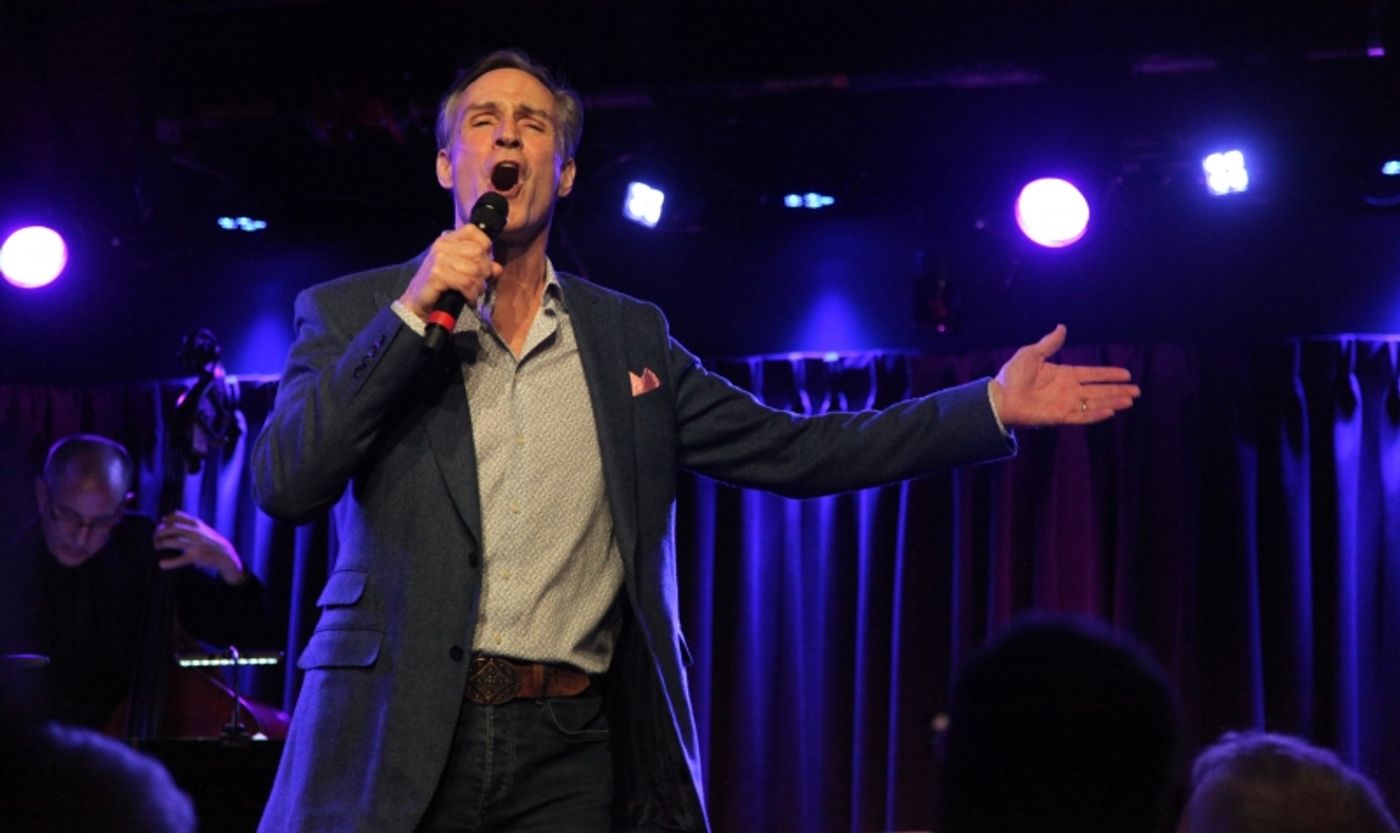
I remember Rupert Hitzig came to see my act and said, "You should go the comedy route" and then Lee Stevens from William Morris said go the comedy route. Well, going the comedy route as a stand-up was daunting - I didn't have an act as a stand-up. So I moved to California from 1980 to 81 and when I left New York I left during the transit strike - I thought it was so smart that I was going to miss the transit strike; I got out to California - there was a SAG strike. No agents were looking. There was a writer's strike and the threat of a director's - or maybe vice versa. Everybody was striking! It was the worst time in the world to go to California to try to get a sitcom. (Laughing) Little by little I morphed into this variety show. I was doing comedy material in my act, mostly funny songs. I worked at The Monkey Bar when I came back from California and they wanted funny - I only did one serious song the whole night and usually, the serious song is when people in the audience get a little rowdy and I'd have to ad-lib with them to keep it in control. It was a very small room and it was very fun - it was this tiny little club but it was so fabulous - I was taken there in my early days of coming to New York. There was a group called Randall and Charles and they came up to me after the show, they said, "We like your laugh. We're recording a comedy album, could you come be in the audience, we want to put a microphone near you." (Laughing) If there had been a job as a professional audience member I have been so good at it.
How did your time at The Monkey Bar turn into Jamie deRoy & friends?
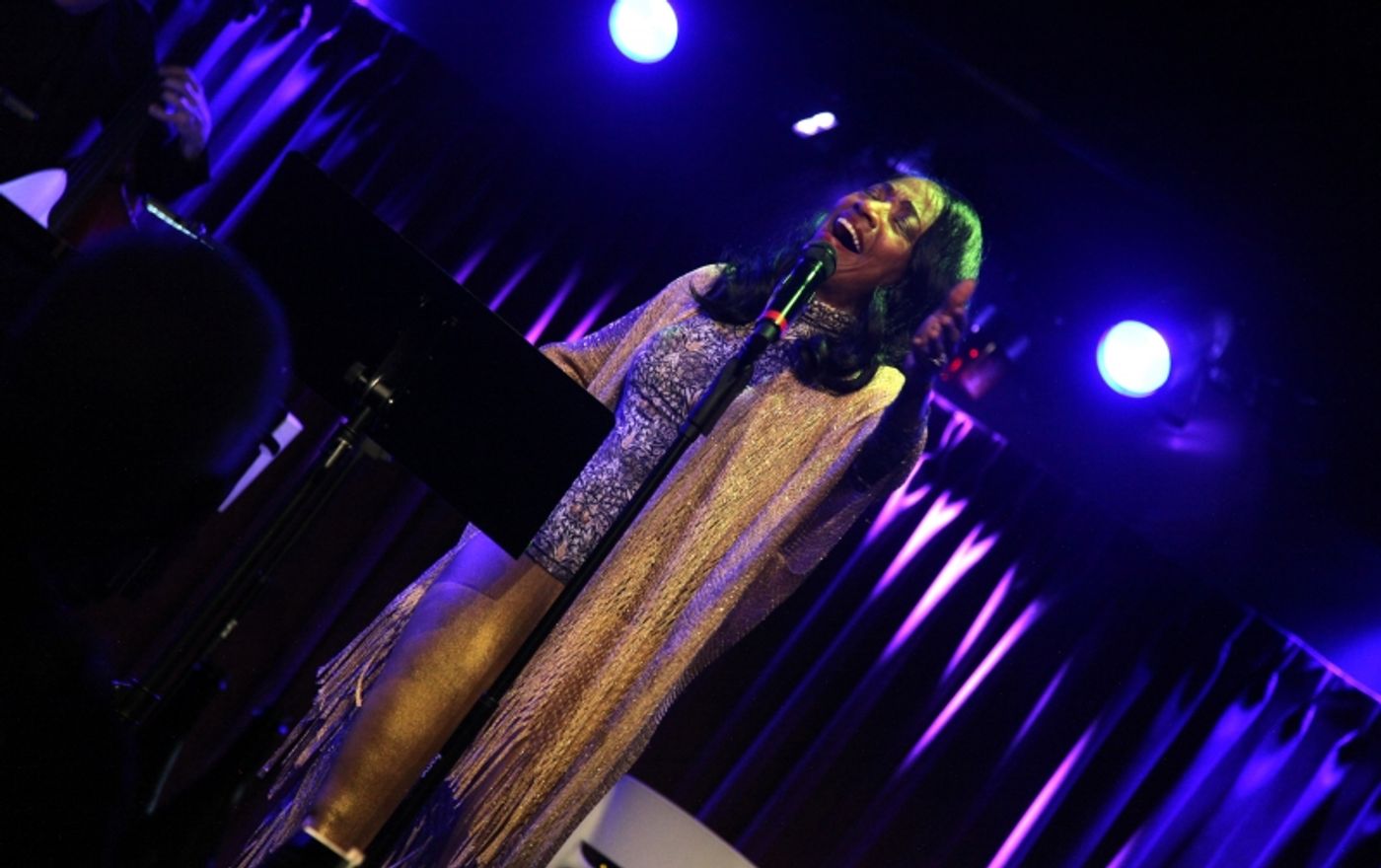
I left because the first New Year's Eve Leon Quain wouldn't give me a bump in my pay at all but the next day he deducted my salary because he was closed. I thought... I work four days a week for month after month - he could pay me for the whole week. So big deal I didn't work one of the nights but one of the nights was New Year's Eve, people get paid two, three, four, five times what they normally get on a regular club date. So I worked the first New Year's Eve and they're just so drunk - I don't like working New Year's Eve, you can make money but the audiences are horrible. So the next year came along and I thought I'd better address this. I went to them and I said, "Are you going to deduct the day after New Year's from my check again or am I going to get the week's salary? And he said, "He's going to just pay you for the three nights and if you don't want to work New Year's Eve he would replace you." I said, "You know what? Tell him to replace me. It's time to move on." At one point I did some PR for the club for free - I did it for me and Mel Martin but I didn't make a phony name, I just didn't sign any name. I had it to go to the Hotel Élysée, or as Mel Martin used to call it the Easy Lay - by the way I said to Mel, in front of Leon one night, "No matter how many times I hear you say that line, Hotel Easy Lay, it cracks me up. And Leon says, "Mel, I've been meaning to talk to you about this. I don't like that." And I looked at him and said, "At 30 years, you think he's going to give it up now? I mean, it was one of his funniest lines!"
(Both laughing)
.jpeg)
So nightclubs are popping up like Don't Tell Mama and I thought, I should start working those kinds of clubs because then I can really start doing what I did at Reno Sweeney's - now I have the comedy stuff. That's when I started playing the cabarets, but it's really hard to keep up with finding comedy material. Sometimes I wrote it, sometimes I wrote it with other friends, or sometimes Barry Mitchell would write parodies for me. Then I met Barry Kleinbort and he wrote parodies for me but it was very hard to keep up with new material - you know comics don't change their material as often as singers do. So I had already started to throw my annual 30th birthday party, it was my 31st birthday that I started, and I decided to invite a few performers to do a couple of numbers. And they were in big spaces like Studio 54 and I would have people perform. I remember Karen Akers did one year and various people, and that became Jamie deRoy & friends: I would hear people do something that I just loved and instead of saying to them, "I really love that song" Or "I think that piece of special material you're doing is so funny, could I do it?" I was like, "Can you come in and do it at one of my shows?" That's how that happened.
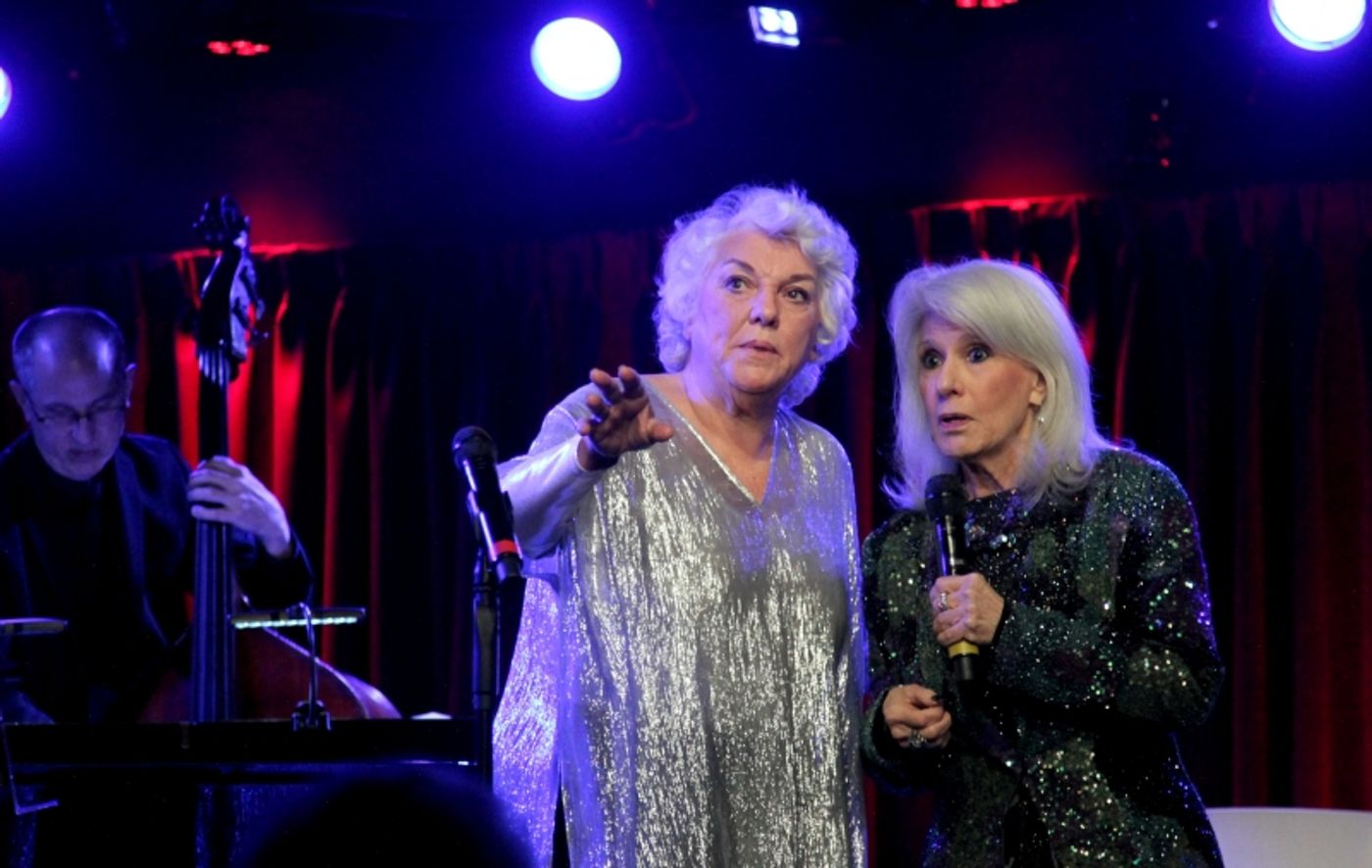
You started out as a musical theater actor and you became a comic. Did you know that you were funny?

No. I never knew I was funny. I wouldn't even say that I became a comic because it sort of went from musical theater to a nightclub singer ... I was considered a musical comedy performer, never a comedian. When I was in LA, I went and I sat in on a couple of classes at The Comedy Store and I got up and I was funny, but I thought, "Wow, you have to do the same thing every night." I was used to, if I didn't get a laugh and I didn't know where to go, I could burst into a song. But when you're a comic... I was ready to go into a song but I had nothing to go to, and I just thought it's too hard. And they would, night after night after night, go to all the different comedy clubs and try their thing, and I said, "I just don't have the heart to do this." I love doing the funny songs and I love the singing part. I'll tell you, I auditioned to open for Joan Rivers in LA - that's the first time I opened for Joan. So there's this guy, Eric Gold, he worked for Irvin Arthur, the agent that booked those dates that she did out there, and they came to see me at The Belly Room, a smaller room above The Comedy Store. It was for women comedians because they knew that they had to start developing female comics. I knew that I wanted to go in the comedic direction but that I didn't have it in me to be a standup comedian. I went there and I was doing all my funny songs and Eric Gold came to see me and he said it was great. He called me: "They said you could open, but you have to do straight songs." I said, "Eric, there's not enough money for me to go backward. If they don't want the funny songs, I don't want to do it." When I went to see Joan, every time I went to see her, if a singer opened for her, they talked all the way through the act and I wanted them to listen to me. He came back to me and he said, "You can do the funny songs" and the first night at The Improv in LA, I saw Edgar, her husband, come walking over to me and I went, "Oh, god, I'm getting fired" because I got a lot of laughs and somebody in the audience even yelled out, "Are you her sister?" Joan said to me later, "I wouldn't want a pretty sister. I want an ugly sister."
(Both laughing)
So he said, "Joan loved the comedy. You just go for it. You can be as funny as you possibly can, do whatever you want, have fun with it. She had a really easy time walking onto that stage, they were so ready for her." I just loved working with her. I ended up just back in New York. I started Jamie deRoy & friends for two reasons: I was constantly trying to come up with new, funny material. And I had been told that I had this thyroid lump and that I might have to have surgery, and if I had surgery, I might not be able to sing anymore. So I kept thinking what can I do if I can't sing anymore? I thought I can introduce people. I don't have to always be singing. That's kind of what stirred me on to come up with something that I didn't have to be the best singer in the world. There were a lot of really great singers out there - Nancy LaMott and Karen Mason, it was very tough competition with girls singers, which they didn't refer to anybody as a girl singer by then. That's why I loved the little niche - a very small niche, I mean, in the MAC awards - one year I think the finalists were me, Sidney Myer and Howard and Drew. Everybody was so different from everybody else. And it was fun introducing my friends and their talent to my friends in the audience!
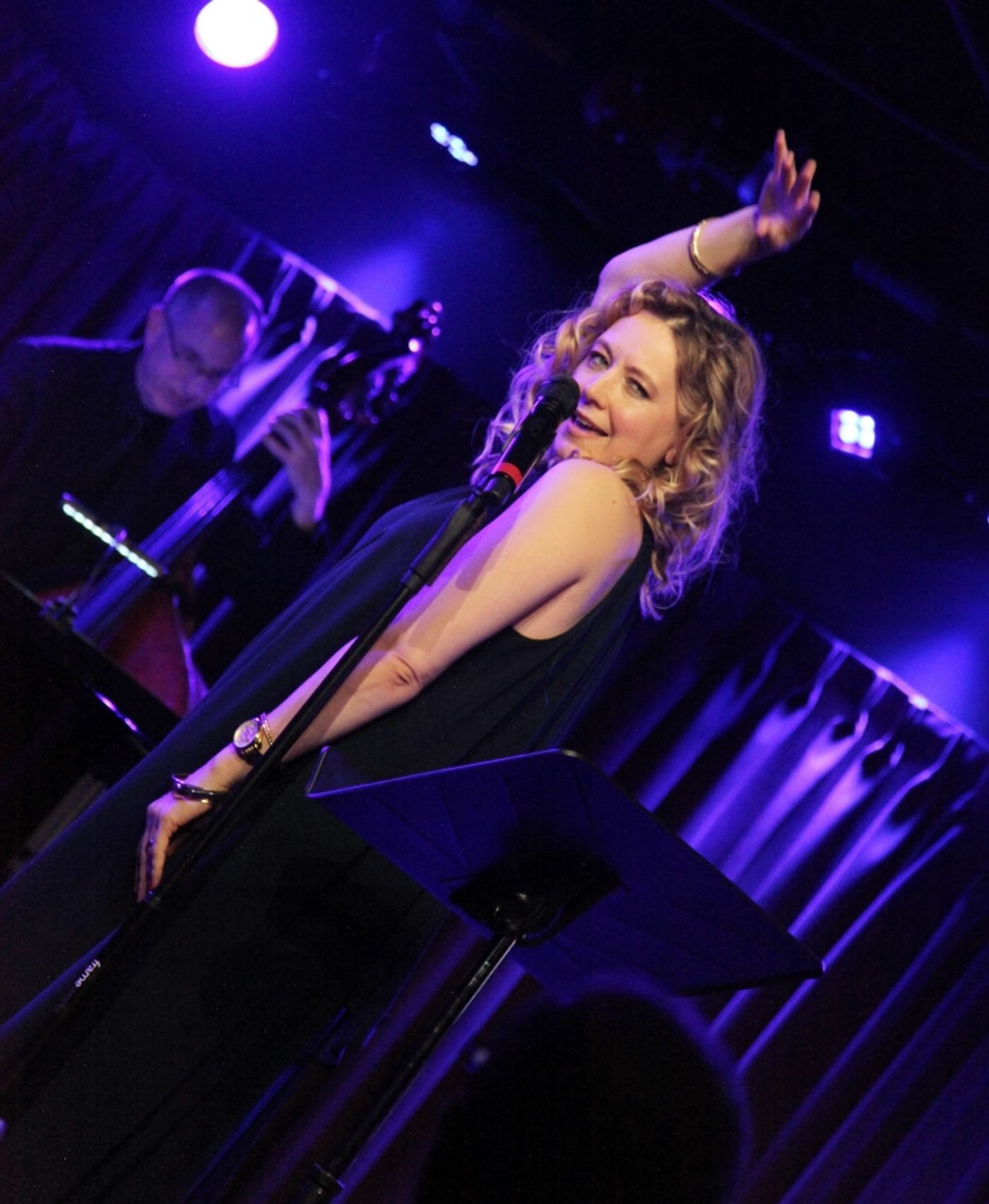
Steve Allen came to the third show I did at Steve McGraw's, and he'd been sending me material. I had written to him and he sent me song after song, after song and music books, cassettes. I was going to do one of his songs that night and when he was in the audience, I said, "Do you want to do it instead?" And he said, "Would you want me to?" I said, "Well, yeah." We ran up the street to Fine and Shapiro and we got a big salami, which he referred to as Louisville Slugger, and we gave it to him at the end of the show - he just loved it. Nice things happened to my guests. Mario Cantone was a guest on my show at Caroline's - Ron Delsener was in the audience, I'd been trying to get Ron Delsener to come and see my show when I was a solo act for years. He finally came when I was doing Jamie deRoy & friends, he sees Mario and he ends up booking him to open for Shirley Bassey at Carnegie Hall! I was so thrilled that that happened for Mario. And that I had a part in making it happen, you know what I mean? He made it happen, but I gave him the stage and the audience where it happened. These things are a combination of things over years of buildup. Ron Delsener must have heard of Mario Cantone before he ever walked into Caroline's that night - maybe that's why he came - and Mario said, "I've been trying to get him to my show for ages and couldn't" and I said, "Well, this is great!" And I never ever, ever, ever, ever begrudged anyone for getting a break through me. I lived for those moments, and I never begrudged anybody their success, which I would see other club owners - if you played their club and then suddenly an act would go from their club to a bigger venue, they would resent it. You can't! The little clubs, they're there to help you build your career. A career takes a lot of building blocks, a lot of trial and error. I watched Pat Benatar grow from doing Catch A Rising Star - she used to sing "Home" from "The Wiz" and then Rick Newman got interested in her and he put her at this club where she did an entire Roy Orbison show - it didn't matter what she sang, she was great; she developed into this rock star. So we were always so thrilled for Pat Benatar. And I was always so thrilled for Barry Manilow, who went from being my musical director...
.jpeg)
I went to a rehearsal one day and he's sitting there with a college friend of mine, Adrienne Arts - I didn't even know they knew each other -they said to me, "Would you mind starting just a few minutes late? We'd love to play you this new song we just wrote, do you mind listening? I said, "Of course, I don't mind." I sat down and they played me, "Could It Be Magic?" I was in tears, it was so beautiful. To be in a moment like that... those moments don't happen that often in your life - that was so special. I guess maybe that's why I've always had a real soft spot in my heart for songwriters - I love songwriters. I've been giving a songwriting award through ASCAP and a few years ago, Benjamin Scheuer got my songwriting award, which comes with a little bit of money, but this year he got the Kleban Award, which comes with a lot of money. I love people that can create, I've always been someone that - I don't want to go to a club cause I'm performing at the club, I want to go to a club because I want to see other performers, you know you learn from other performers. So when I wasn't working, I was seeing, and whether it was another singer or comedian or somebody who did funny stuff, funny songs, even like I did, it's just always been my joy, and Bradshaw Smith got me involved with his show pretty early on - Sidney Myer and I - Cabaret Beat. Bradshaw would cover opening nights in the bigger venues - in those days we had Rainbow And Stars and The Algonquin and they would have bigger opening nights, they'd have celebrities, we'd go, and we would interview the celebrities and whoever the act was, and I loved it. We did that for a couple of years. And then he said to me, "I'm moving on to Broadway, I've got a new show, Broadway Beat. I'm really sorry but this is going to be the end." I said, "Well, I'm going to miss this and he said, "Well, you do your own shows. You videotape them! You can do your own show!" For years there were people that would say to me I want to manage you, I'm going to get you on TV. There was one guy that came to me: "You're the next Ed Sullivan, the Ed Sullivan of the nineties" And I was sort of relying on this guy to get me onto television, which of course never happened. So I got onto public access TV and I never thought that I'd be stuck there for the rest of my life (laughing) but here I am! (laughing)
And it's your show, you're in control! At least twice a month on Sundays.
It used to be every week, I don't know how I did every week, it was so hard. Then they told me if you want prime time, you can only get every other week, so I said fine, it makes it easier - we would do a show every other week, but lately, especially in this whole pandemic year, they repeat my show the week after.
Before the pandemic, you create a brand new show twice a month. During the pandemic, you've been using your archives to continue to work for the last year.
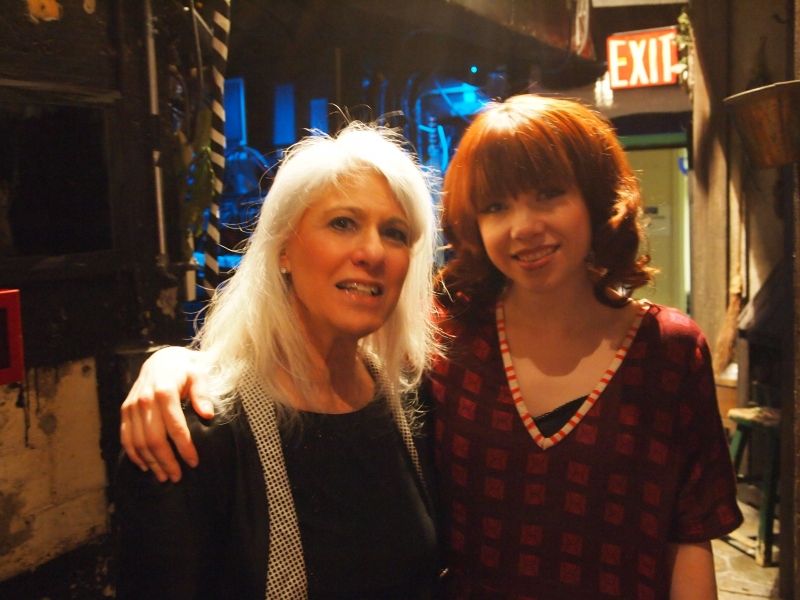
Before the pandemic our mission - we would promote Broadway, off-Broadway, cabarets, and the occasional book, or if somebody was at Carnegie Hall or the New York Pops at Carnegie Hall, general entertainment, especially anything that I could get B-roll footage of. If somebody was going into The Algonquin, but they had done my show, I would have footage of them, then I would say they're going to be at the Algonquin now for three weeks. Also in the early days, Bradshaw was the go-to guy of videotaping everybody's nightclub act, so he would say, "Oh, I just filmed so-and-so, she's really good, she's going into this club, would you want to plug her?" "Of course I'll plug her!" It started with more nightclub stuff and then it morphed into Broadway and off-Broadway. And so for the longest time, I was doing a lot of Broadway and off-Broadway of all the great things that happened. Then the pandemic happened and there's no Broadway, there was no B-roll so, at the beginning, I did a few shows that Primary Stages had done - they interviewed a lot of people off-Broadway, there are wonderful interviews that they've done - you can find them online - of all these people that have created off-Broadway: Tom Jones, who did the Fantasticks, and Richard Maltby, just endless amounts of people, including Terrence McNally. So I aired those interviews for the first few weeks, then I did the benefit that we did at The Green Room 42... and then I said, wait a minute, I've got my own archives. Over the summer, we used to do these theme shows like "The More The Merrier: Duets And More", Academy Award Winning Songs or whatever I came up with. Over the years, unfortunately, we've been losing wonderful performers and I have them on tape. So we would do various "Gone, But Not Forgotten" shows. I had a lot of Tony award winners so I'm going to be doing Tony winners from May to June, and we'll do one that goes with Gay Pride. On the night of the Grammys, I'm going to have Grammy award winners - Larry Gatlin is on it and Julie Gold is on it - and other performers are singing songs that had won song of the year or album of the year. So I've been doing all that kind of stuff because there's 30 years to pull from the archives.
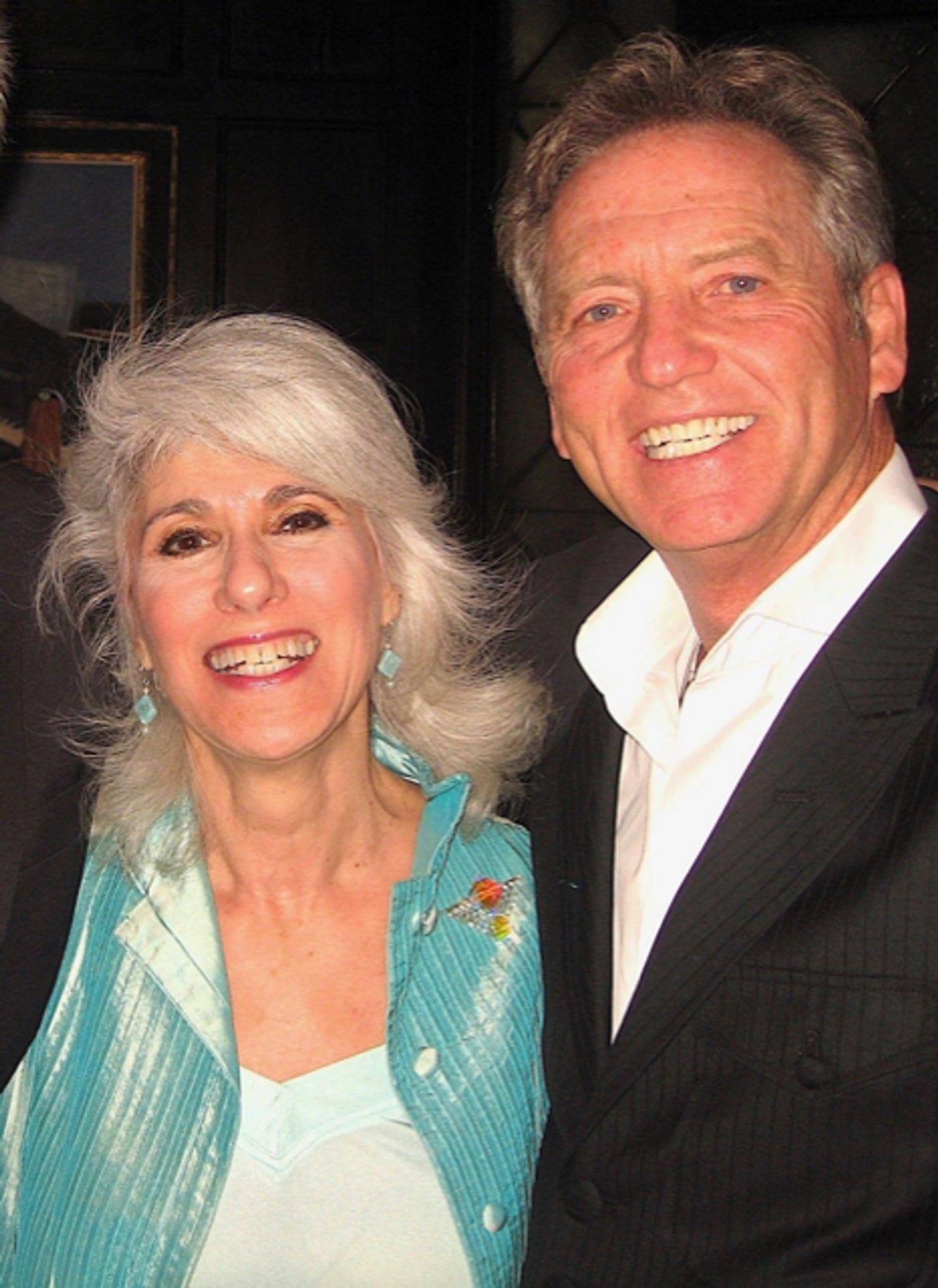
You mentioned that there's a lot of stuff online that you can look at. Why has it been important for you to stay on actual television than to move this to the internet?
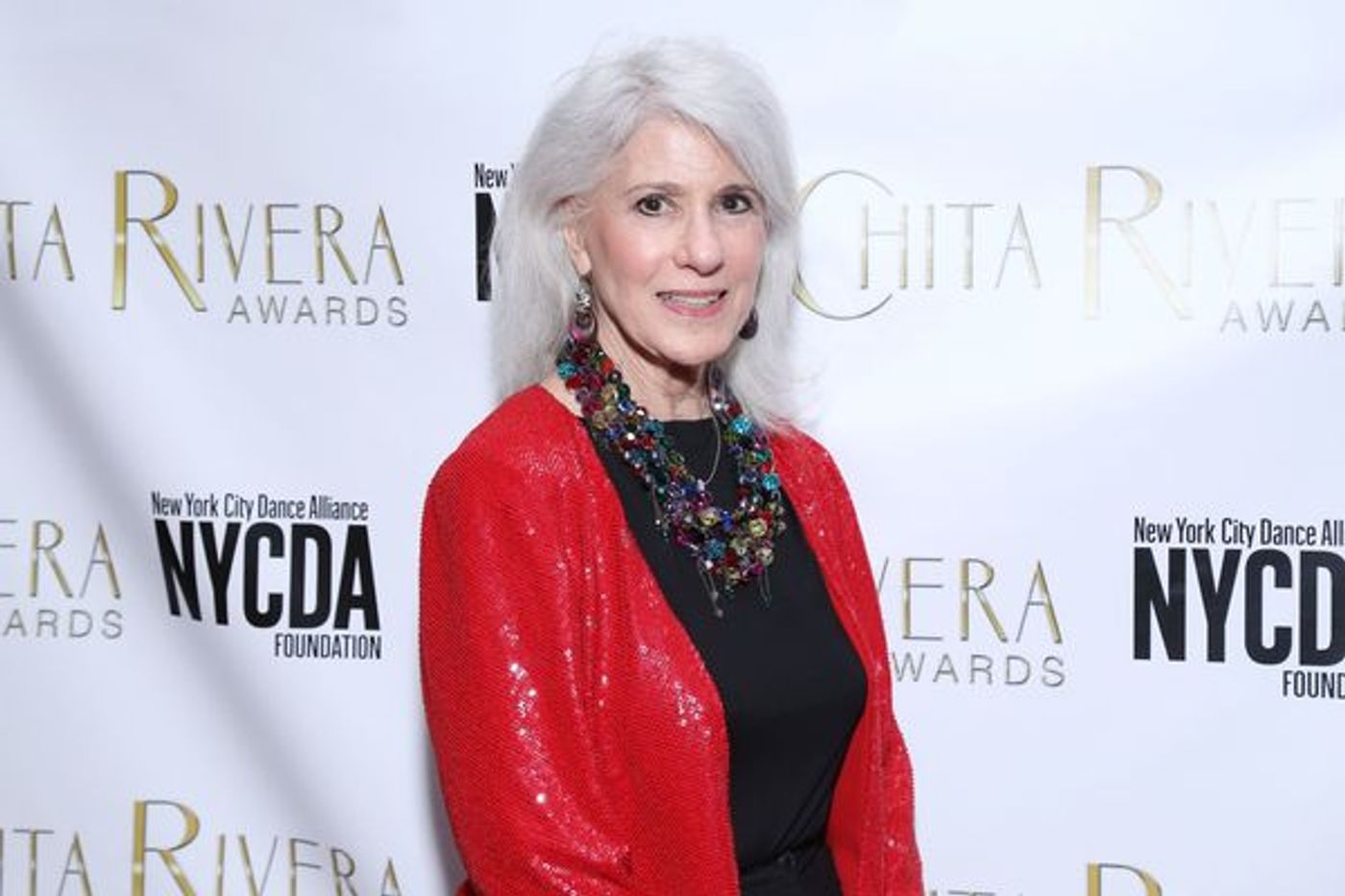 I guess I'm so used to doing the TV show that I hate to let it go. I'm a member of the Drama Desk and the Outer Critics Circle and I see all these shows and I like to support Broadway and off-Broadway and cabaret, and all of the entertainment venues that we used to have and hope to have back very soon, all these things we took for granted before and now we're like: when are they coming back? More people, I guess, can see you on the internet. I just think, even though it's still cable access and not what I call a legit, you know, TV station... anybody out there that wants to make me legit, I'm ready!
I guess I'm so used to doing the TV show that I hate to let it go. I'm a member of the Drama Desk and the Outer Critics Circle and I see all these shows and I like to support Broadway and off-Broadway and cabaret, and all of the entertainment venues that we used to have and hope to have back very soon, all these things we took for granted before and now we're like: when are they coming back? More people, I guess, can see you on the internet. I just think, even though it's still cable access and not what I call a legit, you know, TV station... anybody out there that wants to make me legit, I'm ready!
(Both laughing)
I can still take what I've done for TV and we can put it on the internet but I think the quality is better. I don't know if people would want to perform if it was only on the internet but who knows what will become in the future. I'd just like to just keep it going. After Bradshaw Smith died, which was so sudden and nobody was prepared for that, Russell Bouthiller took over and he has been great - he never edited the show before! Bradshaw always did the editing, but now Russell's become a really good editor.
Jamie, I'd like to shift gears and ask you to do me a favor, because I want to share this with our readers. Would you tell me the Martin Scorsese story?
Oh, I will, yeah. Let me just say one thing, because I would be just horrified if he was left out of all of this. Barry Kleinbort was my director from the variety shows on and is also the director for the cable TV show and, and Russell videotaped everything, now he videotapes, and edits and kind of produces the show. So those are just two people that I would not want to be left off.
Well, they're both pretty amazing guys, super talented.
Ok, I'll be very happy to tell you the Martin Scorsese story - I don't know if you know the Beverly Hills Hotel story, were you ever in the room when I told that story?
I must hear it.
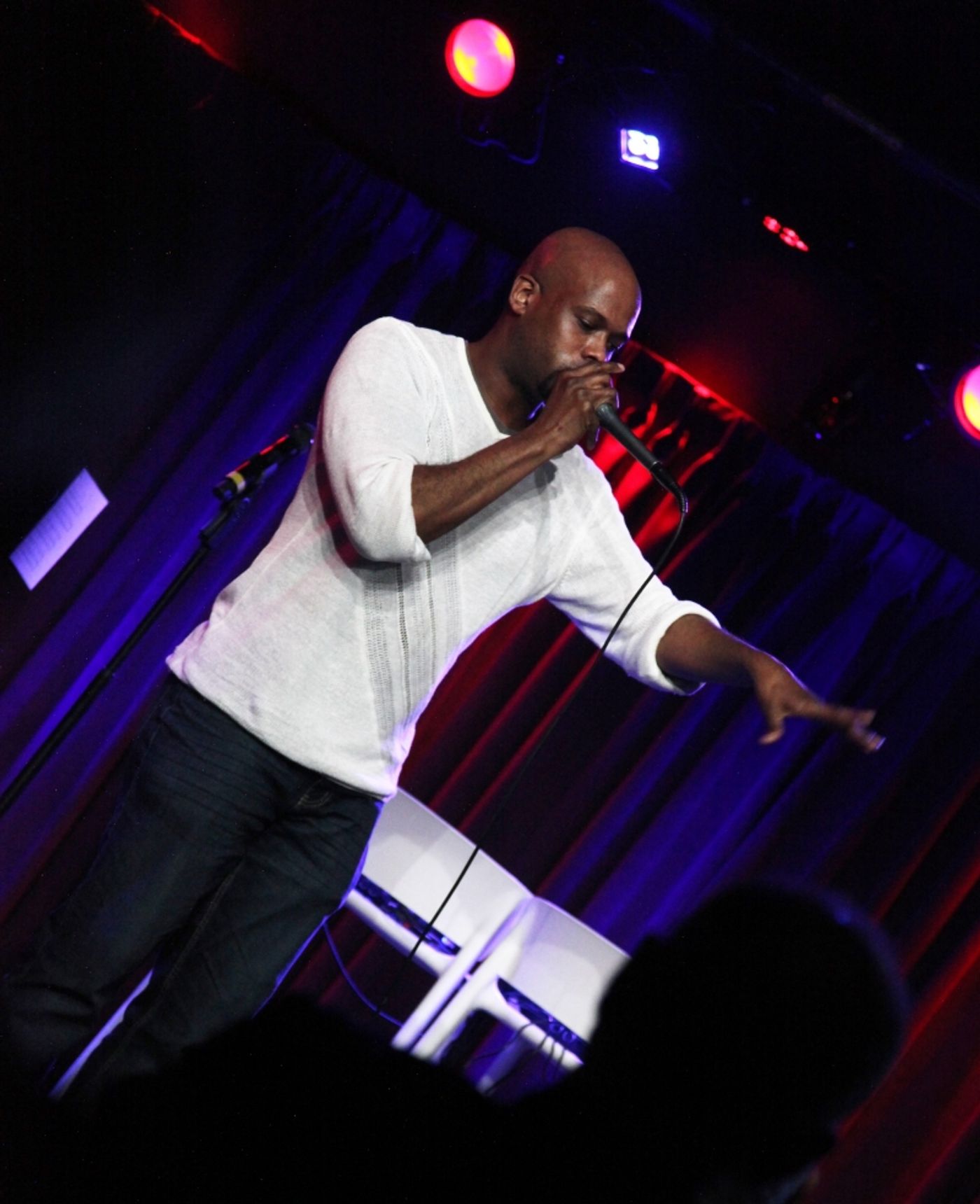
So I'll tell you both. So in the beginning of 89, I auditioned for Goodfellas - it wasn't called Goodfellas, and it was called Wise Guys - and I got this one scene, I went and was fitted for my outfit and everything else. I was supposed to shoot on a certain day in April 1989. And I forget exactly what day in 1989... I was leaving for the Cannes Film Festival - this was supposed to film the Friday before, so I didn't really think it was going to be a problem. But then they canceled Friday and they moved it to Monday. Then they moved Monday to Tuesday and Tuesday to Wednesday. And I was like, "Hey guys, I'm supposed to be on a plane on Friday, if you keep canceling me, I mean, I have to be on a plane to catch a boat." I didn't realize the boat was stationary - it was our hotel. It was this group, they came into the Cannes film festival pretty late, all the hotels were gone. So they hired the Sea Goddess and we use that as our hotel - it was the World President's Organization. So they finally said to me, "I can't guarantee that you'll be able to catch that plane. We may have to replace you." And I said, "I guess you better then." So they replaced me. I go off on this trip, the first night I'm there, Arthur Hiller's on the trip, he was a friend of mine, and people that I didn't know were going to be there - Elaine May, Julian Schlossberg and Alan Arkin, really cool people that gave talks and whatnot - it was really fun. So I said to Arthur, "Well, I probably have just done this stupidest thing in my career - I had a part and I flew to be here and now I'm not going to be in the movie." And he said, "Well, listen, sometimes you just have to live your life and you can't worry about it. Something else will come along". So I do this whole thing, we took a little side trip to the South of France and it was beautiful, I come back and I wasn't home a day - my phone rings. Scorsese wants to see you on the set. And in my mind, I'm going, "It wasn't my fault! I mean, come on!" I thought I was going to get yelled at, that he cast me and then I turned my back and I'm thinking "Oh, sh*t..." I go in, I'm meeting him in his trailer. He comes in the trailer and he says, "Jamie, can you ad-lib?" I looked at him and I said, "Can I ad-lib?!" I had been in an improv group, I was very good at ad-libbing. I said, "I'm better at ad-libbing than I am at learning lines!" He said, "Nicholas Pileggi and I have forgotten a key scene, and we need to tell you what needs to be covered - there are about five or six points - even if you said them out of order, it doesn't matter, you just have to say them." Then he looks at my punk haircut that I had gotten right before - I was doing some party for Clovis Ruffin, he sent a hairdresser over who just sheared my head practically - and he said, "We've gotta do something with that hair to make it look like the fifties." So I went into hair and makeup and I said to them, "You gotta do it, it's depending on you now. And they did! They gave me a hairstyle that worked. And I came back a week later. I shared a dressing room with his father (I wasn't in the scene with him) but I played a typist for the FBI and I get them turned in and arrested. So months and months later there's a cast and crew screening, it's now called Goodfellas, and I got the time confused, I absolutely thought it was 8:30. I got there at 8:15 and the movie had started. I was beside myself. I sat down at the back and I was so curious who had done the role that I walked away from but I never saw it so I thought I had missed it. An AD comes up to me and says "Boy, did you have great timing." And I said, "What are you talking about?" He says, "Well, your original role was cut." I said, "You're kidding." He said no; and I thought "I almost gave up that trip and I could have ended up on the cutting room floor."
(Both laughing)
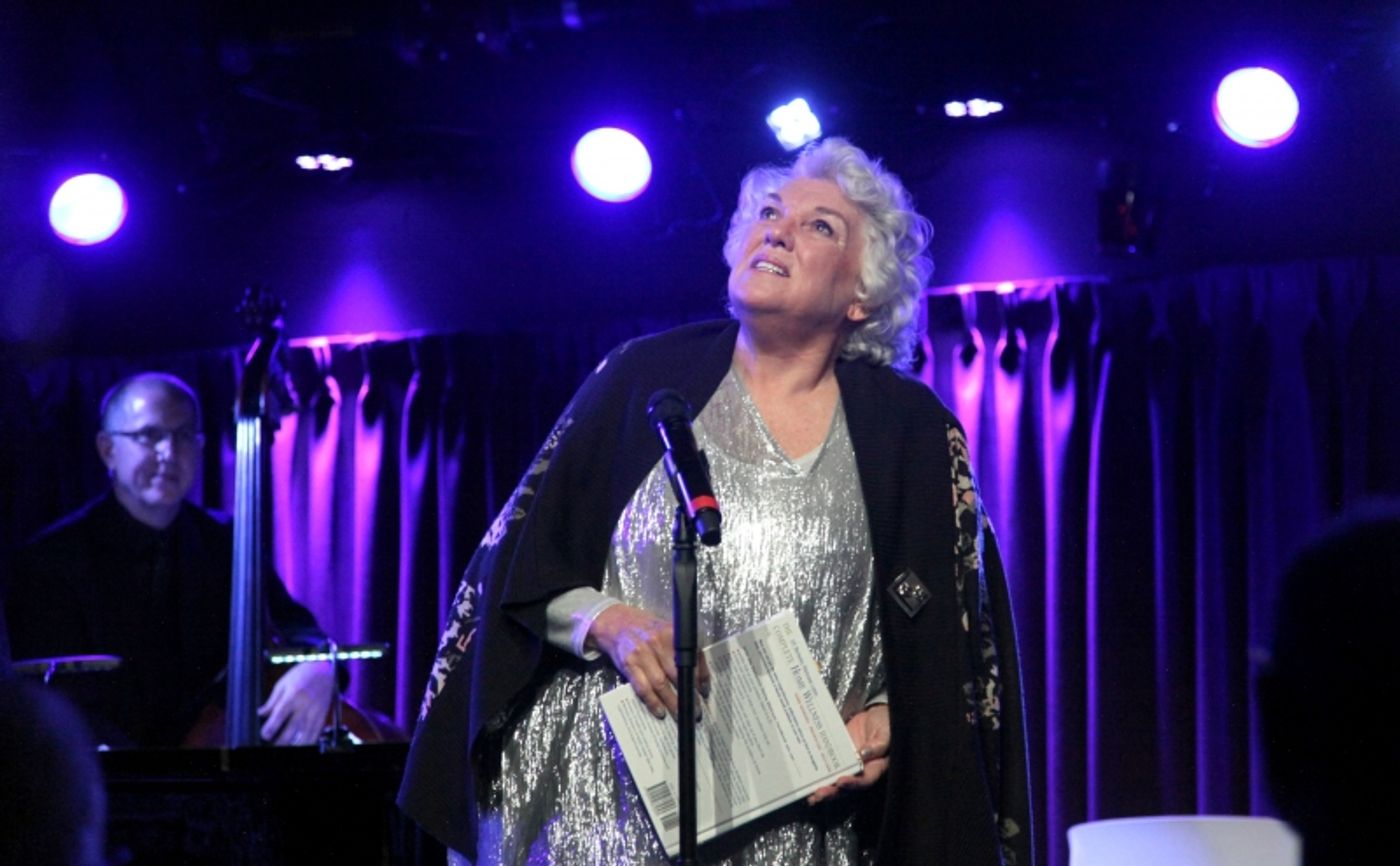
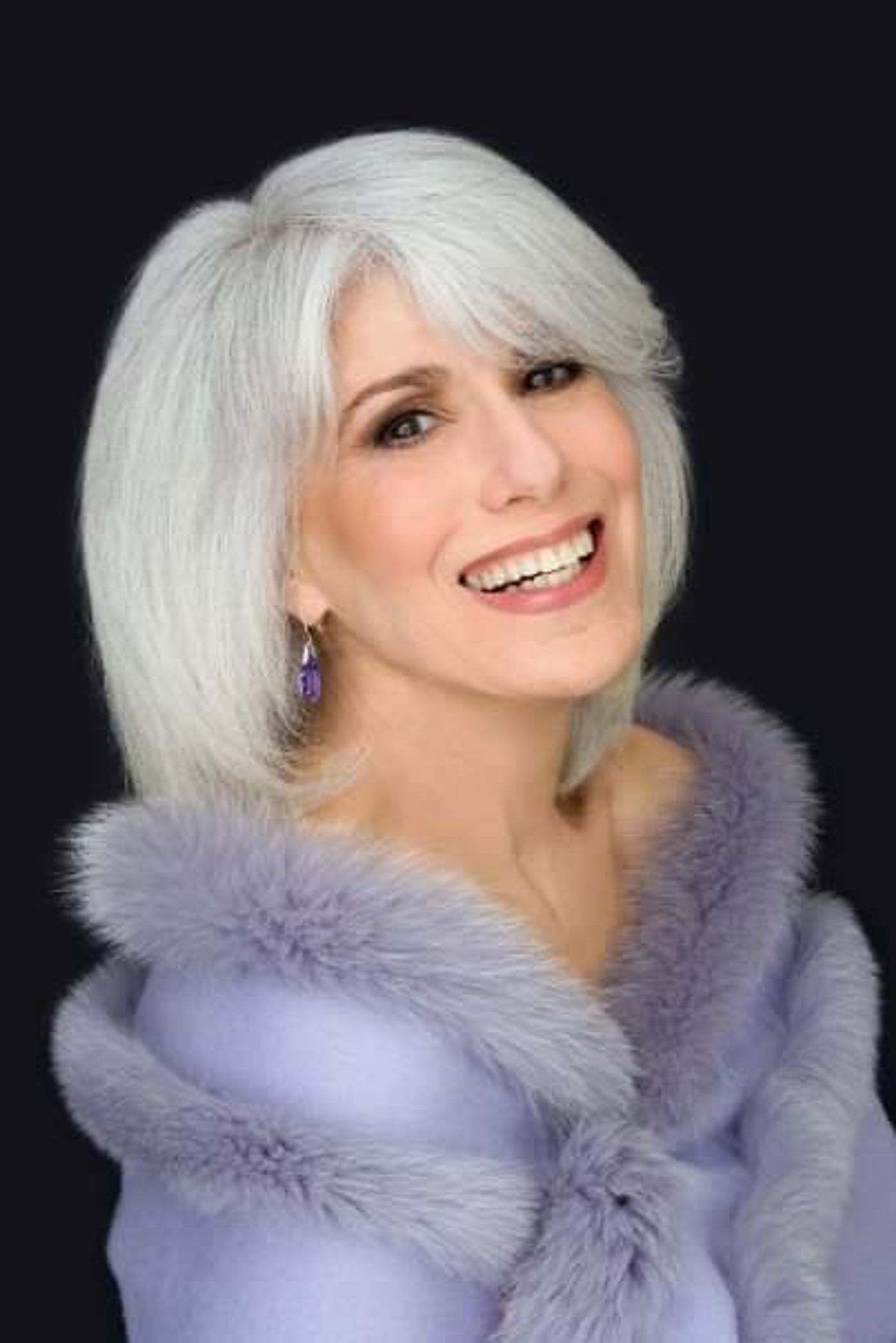 Ok, so my California story, the Beverly Hills Hotel, The Polo Lounge. I was living in LA and a friend of my mother's said she was coming to LA and would I like to have a drink, she's staying at the Beverly Hills Hotel, meet her at the polo lounge. So she tells me when, I show up at The Polo Lounge, I'm looking around the lounge and I do not see her. But in the corner, some guys waved me over. So I just sort of wave back. I go to the hall, I call her, she's still unpacking, she just got off the plane, she said, "You can come and watch me unpack." I don't know if that's going to be so much fun. I said, "I'll tell you what some people in the corner seem to have invited me for a drink... I guess. So why don't I go and sit with them for a while? And then you come in and then we'll go for our drink." So I go over to these people and I said "Are you still up for having company?" And they go, "Absolutely! Join us." They introduced me to Hilly Elkins and his wife, I think her name is Judy Elkins. And it was Marty Ehrlichman, who was Barbra Streisand's manager... and is to this day, and a bunch of other people and people came, they went, it was the most movable feast I've ever, well not feast, but people would come and sit with them for a drink and then they leave. Anyway, so my friend comes finally, and she was probably drunk already from the plane, she has one drink and she says, "I'm going upstairs." So she leaves me there! And even though we only said drink, I just assumed that we would go for dinner. So they start whispering, and they say to me, "Why don't you join us for dinner?" So I go, "Are you sure?" "Absolutely!" So we go to Sunset and Doheny, there was some big restaurant and have the most fun dinner. Toward the end of dinner, there's a lot of whispering. And they said, "Come on with us. We're going to go somewhere, just come with us." I'm sure they just didn't want to drive me back to the hotel because that's where my car was. So we drive in the Hills of Beverly Hills, we get to this house. It has an electronic gate that opens, and my recollection was that there was a guard at the gate, I could be wrong but I remember the iron gate that opened, it looked like a hotel, there were cars there. We get to the front door, ring the doorbell. Sammy Davis, Jr. answers the door. I'm ready to pass out. He says, "Come on, Altovese is downstairs, I'm going to be on The Tonight Show, we'll watch that, and then we'll come back up." So we go downstairs and there's not a hell of a lot of us at this point... we go downstairs, we watch him on The Tonight Show - he was great. And it's always funny and weird and wonderful to watch somebody on The Tonight Show when they're sitting next to you. (Laughing) So now we go upstairs and the conversation was totally hysterical. I have never laughed so much in my life. It was classic. So the night is coming to an end and one of the guys offers to drive me back to my car, which is still parked at the Beverly Hills Hotel. I get to the hotel. We pull into the driveway and I'm getting out of the car. And I said, "I cannot thank you enough. I had the best time of my life. I couldn't have planned this night better. I mean, who could ever imagine that by accident, I would have drinks with you and end up at Sammy Davis Jr.'s house!" And he said, "I gotta tell you, we loved you, Sammy loved you. But when we motioned over, we weren't motioning to you. We were motioning to the maitre D." (Mosher gasps) I fell onto the driveway and in convulsive laughter! The best night of my life, and I wasn't even supposed to be there!
Ok, so my California story, the Beverly Hills Hotel, The Polo Lounge. I was living in LA and a friend of my mother's said she was coming to LA and would I like to have a drink, she's staying at the Beverly Hills Hotel, meet her at the polo lounge. So she tells me when, I show up at The Polo Lounge, I'm looking around the lounge and I do not see her. But in the corner, some guys waved me over. So I just sort of wave back. I go to the hall, I call her, she's still unpacking, she just got off the plane, she said, "You can come and watch me unpack." I don't know if that's going to be so much fun. I said, "I'll tell you what some people in the corner seem to have invited me for a drink... I guess. So why don't I go and sit with them for a while? And then you come in and then we'll go for our drink." So I go over to these people and I said "Are you still up for having company?" And they go, "Absolutely! Join us." They introduced me to Hilly Elkins and his wife, I think her name is Judy Elkins. And it was Marty Ehrlichman, who was Barbra Streisand's manager... and is to this day, and a bunch of other people and people came, they went, it was the most movable feast I've ever, well not feast, but people would come and sit with them for a drink and then they leave. Anyway, so my friend comes finally, and she was probably drunk already from the plane, she has one drink and she says, "I'm going upstairs." So she leaves me there! And even though we only said drink, I just assumed that we would go for dinner. So they start whispering, and they say to me, "Why don't you join us for dinner?" So I go, "Are you sure?" "Absolutely!" So we go to Sunset and Doheny, there was some big restaurant and have the most fun dinner. Toward the end of dinner, there's a lot of whispering. And they said, "Come on with us. We're going to go somewhere, just come with us." I'm sure they just didn't want to drive me back to the hotel because that's where my car was. So we drive in the Hills of Beverly Hills, we get to this house. It has an electronic gate that opens, and my recollection was that there was a guard at the gate, I could be wrong but I remember the iron gate that opened, it looked like a hotel, there were cars there. We get to the front door, ring the doorbell. Sammy Davis, Jr. answers the door. I'm ready to pass out. He says, "Come on, Altovese is downstairs, I'm going to be on The Tonight Show, we'll watch that, and then we'll come back up." So we go downstairs and there's not a hell of a lot of us at this point... we go downstairs, we watch him on The Tonight Show - he was great. And it's always funny and weird and wonderful to watch somebody on The Tonight Show when they're sitting next to you. (Laughing) So now we go upstairs and the conversation was totally hysterical. I have never laughed so much in my life. It was classic. So the night is coming to an end and one of the guys offers to drive me back to my car, which is still parked at the Beverly Hills Hotel. I get to the hotel. We pull into the driveway and I'm getting out of the car. And I said, "I cannot thank you enough. I had the best time of my life. I couldn't have planned this night better. I mean, who could ever imagine that by accident, I would have drinks with you and end up at Sammy Davis Jr.'s house!" And he said, "I gotta tell you, we loved you, Sammy loved you. But when we motioned over, we weren't motioning to you. We were motioning to the maitre D." (Mosher gasps) I fell onto the driveway and in convulsive laughter! The best night of my life, and I wasn't even supposed to be there!
(Both laughing)
I love that story, I'm so glad you told me. Jamie, I am so happy you had time to chat today and I will make sure to catch your Grammy's show on the 14th, on Grammy's night!
Stephen, thank you so much!
This article features photos provided by Jamie deRoy, whose lavender fur headshot was done by Eric Stephen Jacobs.
This article contains photos by Broadway World correspondent Stephen Sorokoff.
Photos of Brian Stokes Mitchell & Larry Gatlin by Barry Gordin.
Information on upcoming episodes of the Jamie deRoy & friends TV show:
Jamie deRoy & friends airs on Sundays at 7:30 PM on Spectrum Channel 56, RCN Channel 83, and Verizon FIOS Channel 34, as well as on East Hampton LTV Channel 20 later on multiple dates. Please see the schedule of upcoming shows:
MARCH/APRIL 2021
GRAMMY AWARD WINNING SONGS 3/14/21
Featuring GRAMMY AWARD WINNERS Julie Gold AND Larry Gatlin
CELEBRATING SONGWRITERS #1 3/28/21
CELEBRATING SONGWRITERS #2 4/11/21
OSCAR WINNING SONGS 4/25/21
Featuring OSCAR WINNERS David Shire AND Stephen Schwartz
MAY/JUNE 2021
TONY AWARD WINNERS #1 5/09/21
TONY AWARD WINNERS #2 5/23/21
MORE FROM THE ARCHIVES 6/06/21
GAY PRIDE 6/20/21
FAMILY TIES 7/04/21
GONE BUT FORGOTTEN #6 7/18/21
THE MORE THE MERRIER PART 2 8/01/21
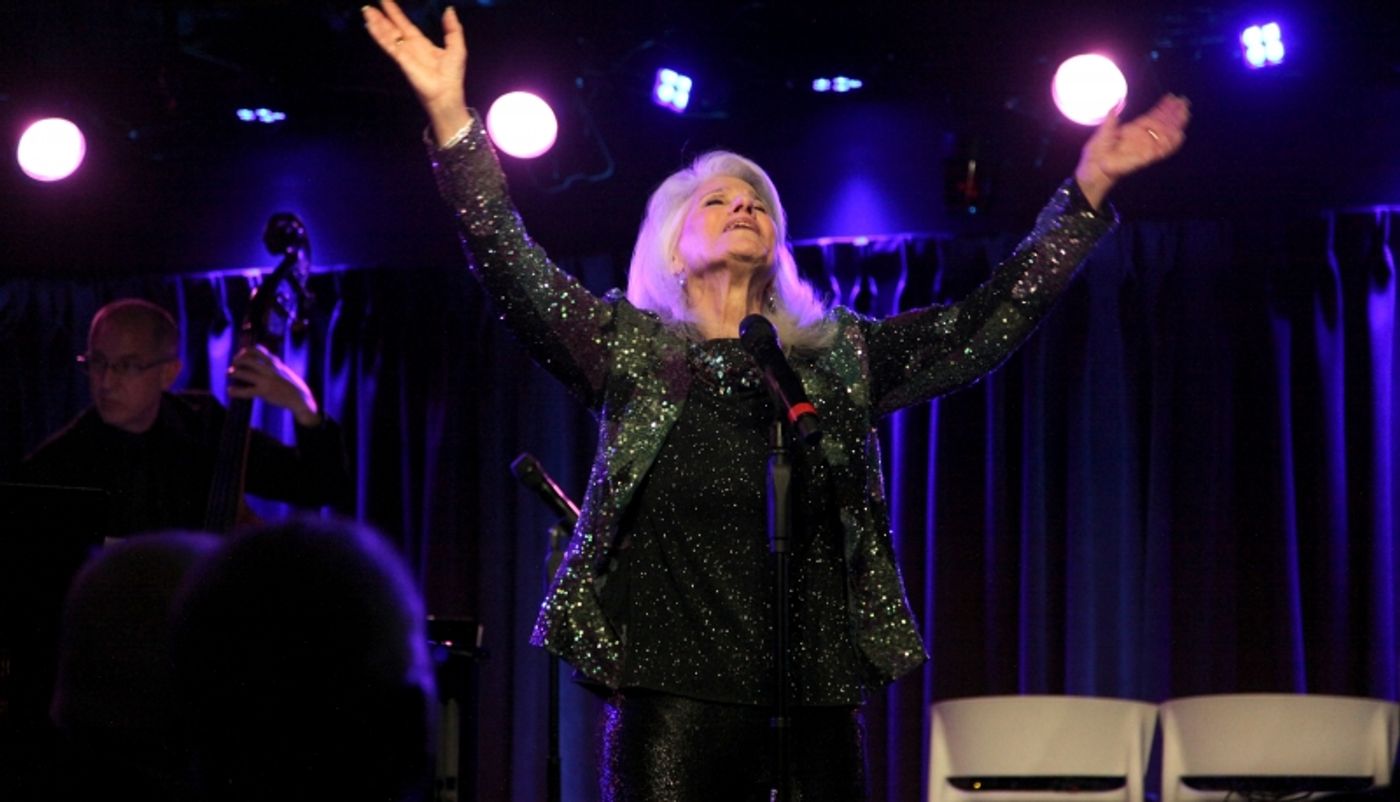
Jamie deRoy & friends Primary Stages Benefit at The Green Room 42 photos by Stephen Mosher
Videos

